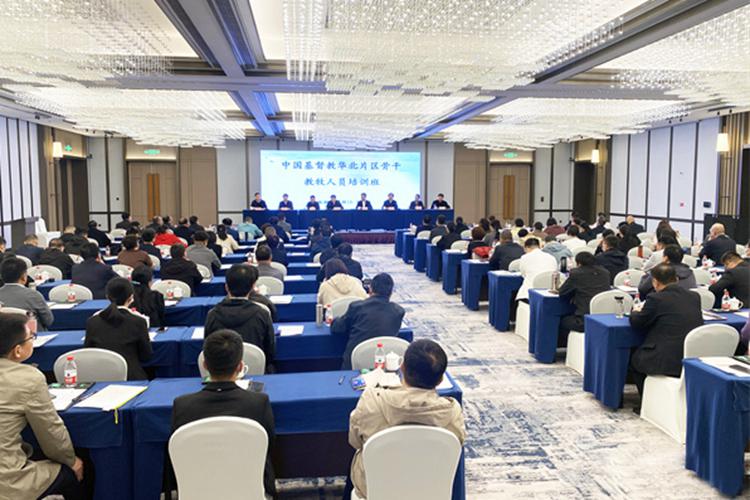A training course for pastor staff in north China was hosted in east China’s Hebei Province.
Above 110 pastoral workers from Beijing, Tianjin, Inner Mongolia, Shanxi, and Hebei participated in the study in Zhangjiakou City from April 18 to 21, said CCC&TSPM.
The training program consisted of five lessons, covering topics such as the sinicization of Christianity in religious work in the new era, the construction of theological thought, church regulations, church management, and the study and implementation of the spirit of the 20th National Congress of the Communist Party of China (CPC).
Rev. Xu Xiaohong, chairman of the Chinese Three-Self Patriotic Movement Committee (TSPM), delivered a lecture with the title "Promoting Religious Work in the New Era and Advancing the Development of Christianity in the Chinese Context." In his address, he summarized and affirmed the achievements made in the process of sinicization of Christianity, while also analyzing the challenges and obstacles faced in the indigenization of Christianity in China. Emphasizing the importance of churches' adaptation to a socialist society, he called for enhanced efforts in this regard.
Rev. Wu Wei, president of the China Christian Council (CCC), gave a speech titled "Strengthen Construction of Theological Thought, Promote the Sinicization of Christianity, and Strive to Run Chinese Churches Well," reviewing attempts at contextualizing Christianity in China. He elaborated on related concepts, meanings, forms, contents, and objectives associated with the sinicization of Christianity, explaining why the construction of theological thought was the key to the indigenization of Christianity in China.
Drawing on his extensive pastoral experience, Rev. Shan Weixiang, the vice president and general director of the China Christian Council (CCC), delivered a speech titled "Managing Intra-Church Conflicts." In his address, he analyzed the current manifestations of church conflicts, identified common factors contributing to intramural disputes, and proposed ways to resolve them.
- Translated by Abigail Wu












